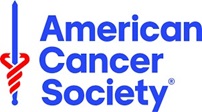 The American Cancer Society funds the ACS Post-Baccalaureate Fellows Program, which aims to strengthen the cancer workforce by increasing the number of individuals in the biomedical field. The ACS Post-Baccalaureate Fellows Program is a two-year cancer research experience designed for individuals with a bachelor’s degree who intend to pursue medical school or graduate studies in biomedical science, public health, or a health profession.
The American Cancer Society funds the ACS Post-Baccalaureate Fellows Program, which aims to strengthen the cancer workforce by increasing the number of individuals in the biomedical field. The ACS Post-Baccalaureate Fellows Program is a two-year cancer research experience designed for individuals with a bachelor’s degree who intend to pursue medical school or graduate studies in biomedical science, public health, or a health profession.
Program Benefits
- Two-year program with individual development plan
- Opportunity to perform cancer research tailored to research interests
- Exposure to clinical oncology through clinical trial design education and supervised shadowing
- Career development training and mentoring through academic skills workshops, career information seminars, and collaborative scientific interactions
- Access to monthly seminars and networking sessions presented by Sylvester, the University of Miami Miller School of Medicine
- Year-round professional development
- Development of writing skills
- Community networking through bidirectional engagement of local communities
- Conference attendance and national networking
- Summer schedule of career development sessions and networking events, including:
- Mini bootcamps on understanding computational and bioinformatics approaches in oncology research
- Workshops on academic skills, career training, graduate school, and research options
- Fieldtrips centered around community outreach and cancer disparities
- Interactions with Sylvester leadership
- Competitive annual stipend and benefits
As a result of intensive research and mentorship, ACS Post-bac fellows will demonstrate enhanced knowledge, skills, and preparedness for advanced education and career opportunities in the field on oncology.
Eligibility
Applicants must meet the following criteria:
- Applicants must agree to participate in the ACS Post-Baccalaureate Fellow program full-time and cannot be simultaneously enrolled full-time in a graduate degree granting program.
- Bachelor’s degree in any STEM discipline, health profession or related field
- < 3 years having a conferred bachelor's degree.
- US citizenship is not required for the ACS Post-Baccalaureate Fellows. Applicants must provide the necessary documentation to receive work authorization at the University of Miami.
Candidates with varied cancer research interests and career aspirations are encouraged to apply.
Program Mentors
| Name & Academic Rank | Department | Cancer Research Focus |
|---|---|---|
|
Sylvia Daunert, Pharm.D., M.S., Ph.D. Professor |
Biochemistry and Molecular Biology | Dr. Daunert’s lab focuses on microbiome research, including quorum sensing and the development of biosensors for QSMs, host-microbiome interactions, and investigating the mechanisms and effect of the microbiome on the onset of cancer. |
|
Wael El-Rifai, M.D., Ph.D. Professor |
Surgery | Dr. El-Rifai's lab investigates the roles of infection, inflammation, and oxidative stress in tumorigenesis for the development of therapeutic approaches that target redox vulnerabilities in cancer cells. |
|
Sophia George, Ph.D. Associate Professor |
Obstetrics, Gynecology & Reproductive Sciences | Dr. George’s area of research is hereditary breast and ovarian cancer syndrome. The lab uses molecular genetics, epigenetics, and transcriptomics to study disease pathogenesis and overall outcomes for women diagnosed with these diseases. |
|
David Benner Lombard, M.D., Ph.D. Associate Professor |
Pathology | Dr. Lombard’s lab focuses on SIRT5, a protein that is dispensable in normal cells and tissues, but plays a key pro-survival role in melanoma. |
|
Eric Mellon, M.D., Ph.D. Associate Professor |
Radiation Oncology | Dr. Mellon's area of research interest is MRI-guided radiation therapy for cancer. |
|
Matthew Schlumbrecht, M.D. Professor |
Obstetrics, Gynecology & Reproductive Sciences | Dr. Schlumbrecht’s primary area of interest is in gynecologic cancer disparities, specifically those that impact Black women and women of Afro-Caribbean descent. |
|
Denise Vidot, Ph.D. Associate Professor |
Nursing & Health Studies | Dr. Vidot’s research focuses on the biological, psychosocial, and societal implications of cannabis/cannabinoid use across the lifespan. One of her projects aims to assess the frequency, patterns, and reasons for cannabis use among cancer patients. |
Important Dates
This program is not currently accepting new applications. Please check back for further information or contact us at acs.pb@miami.edu.